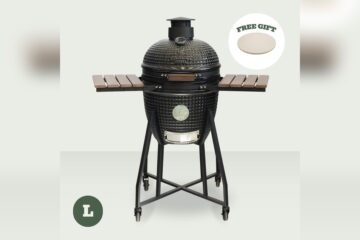Pizza sauce is good for about 7-10 days in the fridge. Pizza sauce can be a versatile and delicious addition to various dishes, but knowing how long it remains fresh in the fridge is essential.
Proper storage is critical to ensuring the longevity of your pizza sauce. Pizza sauce is generally good for about 7-10 days when stored in the refrigerator. Sealing it tightly in an airtight container or jar is essential to maintain its freshness for as long as possible.
Whether you’re using it for homemade pizza, pasta dishes, or other culinary creations, making sure your pizza sauce is still good is crucial for both taste and food safety. We’ll provide you with some guidelines on how long pizza sauce can last in the fridge and offer some tips on how to tell if it’s gone wrong.
Factors That Affect The Shelf Life Of Pizza Sauce
As a pizza lover, there’s nothing more disappointing than reaching into your fridge, ready to whip up a delicious homemade pizza, only to find that your pizza sauce has gone wrong. Understanding the factors affecting the pizza sauce’s shelf life can help you ensure its freshness and prevent any culinary mishaps. From the ingredients and preparation techniques to the packaging and storage conditions, each factor plays a crucial role in determining how long your pizza sauce stays good in the fridge.
Ingredients And Preparation Techniques
Regarding the shelf life of pizza sauce, the ingredients used and the preparation techniques can make a significant difference.
Fresh and high-quality ingredients are essential to maintaining the sauce’s longevity. Fresh vine-ripened tomatoes, garlic, herbs, and spices provide a flavorful sauce with a longer shelf life. On the other hand, using low-quality or expired ingredients can shorten the sauce’s lifespan, affecting both taste and safety.
In terms of preparation techniques, ensuring the sauce is cooked thoroughly can help extend its shelf life. Proper heating and cooling techniques kill any bacteria present and slow the growth of spoilage microorganisms, increasing the sauce’s stability and safety.
Packaging And Storage Conditions
The way pizza sauce is packaged and stored significantly impacts its shelf life.
Airtight containers, such as glass jars or food-grade plastic containers, are crucial for preserving the sauce’s freshness. Airtight packaging prevents air and moisture from entering the container, which can lead to spoilage. Ensure the lids or caps are tightly sealed to maintain an oxygen-free environment.
Regarding storage conditions, keeping the sauce in the fridge is a must. Refrigeration slows down bacterial growth and reduces the risk of spoilage. It’s recommended to store pizza sauce at a temperature below 40°F (4°C) to maximize its shelf life. Additionally, keeping the dressing away from direct sunlight and heat sources helps maintain its quality and extends its lifespan further.
Contamination Risks
Contamination is a significant risk that can shorten the shelf life of pizza sauce.
When preparing or handling pizza sauce, following proper hygiene practices is crucial. This includes thoroughly washing fruits, ingredients, and utensils and practicing good hand hygiene. Introducing bacteria or contaminants from dirty surfaces or hands can accelerate spoilage and compromise food safety.
Additionally, cross-contamination should be avoided at all costs. Separating utensils and cutting boards for raw meat and other ingredients and adequately cleaning them after each use reduces the risk of harmful bacteria spreading to the sauce.
By considering the ingredients and preparation techniques, packaging and storage conditions, and contamination risks, you can ensure that your pizza sauce remains fresh and delicious for as long as possible. So go ahead and enjoy your homemade pizza with the confidence that your sauce is in its prime!
Understanding The Shelf Life Of Unopened Pizza Sauce
When storing pizza sauce, it’s essential to understand its shelf life to enjoy fresh and delicious pizzas every time. This section will focus on the subheading: Understanding the Shelf Life of Unopened Pizza Sauce. Specifically, we will explore the significance of the best-by date and how to determine the freshness of unopened sauce. We will also discuss the safe consumption of pizza sauce beyond the best-by date. Let’s dive in!
Best-by Date And Its Significance
The best-by date printed on the pizza sauce packaging indicates the date until the sauce is expected to maintain its peak quality. It is not an expiration date but rather a suggestion from the manufacturer on when the sauce is at its best. Although the sauce may still be safe to consume after this date, its taste, texture, and nutritional value may deteriorate.
Determining The Freshness Of Unopened Sauce
Before using unopened pizza sauce, assessing its freshness is vital to ensure a satisfying pizza experience. Here are a few signs to look for:
- The sauce should have a consistent color and texture. Any discoloration or unusual texture, such as separation or clumps, may indicate spoilage.
- Check for any off-putting odor. Fresh pizza sauce should have a pleasant tomato aroma. If you notice any foul or sour smell, it’s best to discard the sauce.
- Inspect the container for any signs of bloating, leaks, or damage. Damaged packaging can compromise the sauce’s freshness and safety.
Examining these factors allows you to determine whether the unopened pizza sauce is still fresh and safe.
Safe Consumption Beyond The Best-by Date
The best-by date on pizza sauce is merely a guideline, and the sauce can often be consumed beyond this date if stored properly. If the sauce passes the earlier freshness test, it is likely safe even after the best-by date.
To ensure that the pizza sauce remains safe for consumption, store it in the refrigerator at the recommended temperature, usually between 35°F (1.7°C) and 40°F (4.4°C). Keeping the sauce at a cool temperature slows down the growth of bacteria and extends the sauce’s shelf life.
However, note that the sauce’s quality may gradually decline, affecting its taste and overall appeal. If you notice any significant changes in color, texture, or flavor, it is advisable to discard the sauce, even if it is within the best-by date.
In conclusion, while the best-by date provides valuable guidance, using your senses and following proper storage practices are essential in determining the freshness and safety of unopened pizza sauce. Doing so allows you to confidently enjoy your pizza creations without compromising taste or health.
Assessing The Shelf Life Of Opened Pizza Sauce
Properly storing opened pizza sauce is crucial to maintain its freshness and taste. Understanding the shelf life of spread sauce will help you determine whether it is safe to consume or if it’s time to discard it. Here, we delve into the optimal storage practices for opened sauce, the signs of spoilage to look out for, and the recommended consumption duration after opening.
Proper Storage Practices For Opened Sauce
To ensure your pizza sauce remains fresh for as long as possible, it’s essential to follow these proper storage practices:
- Transfer the sauce into an airtight container: Once you’ve opened the pizza sauce jar, immediately transfer the remaining sauce into an airtight container. This helps prevent spoilage and maintains its freshness.
- Refrigerate promptly: Place the airtight container with the sauce in the refrigerator within two hours of opening to slow down the growth of bacteria and prolong the sauce’s shelf life.
- Keep the sauce away from direct heat and light: Store the dressing container in a cool, dark place within the refrigerator, such as the back or bottom shelf. Heat and sunlight can accelerate the spoilage process.
Signs Of Spoilage To Look Out For
Despite proper storage, opened pizza sauce can eventually spoil. Here are the signs to look out for to determine if the sauce has gone wrong:
- Off smell: If the sauce emits a foul or sour odor, it indicates bacterial growth and spoilage.
- Mold: The appearance of mold on the surface of the sauce is a clear sign of spoilage. Discard the sauce immediately.
- Unusual texture or color: If the sauce has become clumpy, slimy, or has changed in color significantly, it is likely spoiled and should not be consumed.
- Taste test: If the sauce tastes off or has a strange flavor, it is best to err on caution and discard it.
Optimal Duration To Consume After Opening
The optimal duration for consuming opened pizza sauce varies depending on storage conditions and the spice brand. As a general guideline, drinking spread pizza sauce within five to seven days of opening is recommended. However, always check the manufacturer’s label for specific instructions regarding shelf life after starting.
By adhering to proper storage practices, paying attention to signs of spoilage, and consuming the sauce within the recommended timeframe, you can ensure that your opened pizza sauce remains safe to eat and maintains its quality.

Credit: www.indianhealthyrecipes.com
Tips To Extend The Shelf Life Of Pizza Sauce
Tips to Extend the Shelf Life of Pizza Sauce
Storing In Airtight Containers
One of the most important tips to extend the shelf life of pizza sauce is to store it in airtight containers. When exposed to air, the sauce can oxidize and spoil faster. By sealing it tightly, you can prevent bacterial growth and maintain its freshness for extended periods. Opt for glass or plastic containers with secure lids that seal tightly.
Utilizing Proper Refrigeration Techniques
Proper refrigeration is crucial in keeping pizza sauce fresh. Once opened, transferring the sauce into an airtight container before placing it in the refrigerator is recommended. This will help maintain its flavor and prevent it from picking up any odors from other food items in the fridge.
Ensure your refrigerator is set to a temperature below 40°F (4°C) to inhibit the growth of harmful bacteria. It is also essential to maintain consistency in temperature by avoiding frequent temperature fluctuations caused by opening and closing the refrigerator door too often.
Freezing Pizza Sauce For Long-term Storage
If you want to extend your pizza sauce’s shelf life even further, freezing is an excellent option. Freezing not only helps to preserve the flavor but also maintains the sauce’s quality for months. Here’s how you can freeze pizza sauce for long-term storage:
- Before freezing the sauce, allow it to cool completely.
- Divide the sauce into smaller portions you will likely use in one go, as thawing and refreezing can affect the sauce’s quality.
- Place each portion in airtight freezer-safe bags or containers, ensuring all excess air is removed to prevent freezer burn.
- For easy reference, label each bag or container with the freezing date.
- Store the sauce in the freezer, which can last up to three months without losing its flavor.
When ready to use the frozen pizza sauce, thaw it overnight in the refrigerator. Avoid melting at room temperature to prevent the growth of bacteria.
“`
When To Discard Pizza Sauce
How long can your pizza sauce stay in the fridge before it’s time to bid it farewell? You’ve come to the right place! While pizza sauce is a delicious staple for your homemade pizzas, it only lasts a while. To ensure the quality and safety of your sauce, it’s essential to know when to toss it out. In this article, we’ll explore the indications of spoilage, the health risks associated with consuming spoiled sauce, and general guidelines for disposal. So, let’s dig in and find out!
Indications Of Spoilage
Identifying whether your pizza sauce has gone wrong is crucial to avoid unpleasant experiences. Here are some signs that indicate spoilage:
- Unpleasant Odor: If your sauce develops a foul or off-putting smell, it strongly indicates that it has spoiled. Trust your nose! A rotten or fermented odor is a clear sign that it’s time to say goodbye to your sauce.
- Mold Growth: The appearance of mold is never a good sign. If you notice any mold growth, green or fuzzy spots, or discoloration on your pizza sauce’s surface, discard it immediately. Toxins produced by mold can be harmful to your health.
- Abnormal Texture: A sauce that has gone bad may have a slimy or gritty texture. If you notice any unusual consistency, it’s best to play it safe and toss it out. Texture changes often occur as a result of bacterial growth.
Health Risks Associated With Consuming Spoiled Sauce
Consuming spoiled pizza sauce can pose serious health risks. Here’s why:
- Bacterial Growth: As pizza sauce contains moisture and is typically stored in a relaxed environment like the refrigerator, it can become a breeding ground for bacteria. Bacteria such as Salmonella and E. coli can grow exponentially in spoiled sauce, leading to food poisoning and other gastrointestinal issues if consumed.
- Foodborne Illness: Eating pizza sauce past its prime can result in foodborne illnesses. Nausea, vomiting, abdominal cramps, and diarrhea may occur due to the harmful bacteria. It’s always better to prioritize your health over a few extra days of storing sauce.
- Allergic Reactions: If you or anyone consuming the sauce has specific food allergies, consuming spoiled pizza sauce can trigger allergic reactions. Common allergens such as dairy, tomatoes, or spices in the sauce can become more potent and irritable as it spoils.
General Guidelines For Disposal
Now that we’ve covered the indications of spoilage and the health risks, it’s time to address the proper disposal of pizza sauce. Follow these general guidelines to ensure safe and responsible removal:
- Check the Expiration Date: Always check the expiration date on the sauce bottle or container before using it. This data estimates how long the sauce is expected to stay fresh. Remember that this date assumes proper storage and may only be partially accurate in some cases.
- Use the Sniff Test: Give it a quick sniff before using the sauce. If it smells odd or has an off aroma, it’s best to toss it out.
- Observe Storage Times: Generally, homemade or store-bought pizza sauce can last in the fridge for about 3 to 5 days. Beyond this timeframe, it’s advisable to discard the sauce, even if it appears and smells fine.
- Seal It Properly: To prevent cross-contamination or the spread of odors, ensure to tightly seal the sauce container or transfer it into an airtight container before refrigerating. This helps maintain its freshness for a more extended period.
- Consider Freezing: If you have excess pizza sauce that you won’t be able to consume within the recommended storage time, consider freezing it in suitable containers. Frozen pizza sauce can last several months when stored at 0°F (-18°C) or below.
By following these simple guidelines, you can ensure the quality and safety of your pizza sauce, giving you the peace of mind to enjoy your homemade pizzas without any worries!
Frequently Asked Questions On How Long Is Pizza Sauce Good For In The Fridge
Pizza sauce can be stored in the fridge for 4-5 days. Using it within this time frame is recommended for optimal freshness and flavor.
Yes, you can freeze pizza sauce. Label an airtight container or freezer bag with the date after transferring the sauce. It can be stored in the freezer for up to 3 months.
If pizza sauce has a sour smell, mold, or an off-color appearance, it has likely gone bad and should be discarded. Also, if the texture is watery or slimy, it’s best to err on caution and replace it.
Yes, pizza sauce should not be left out overnight. Bacteria can proliferate at room temperature, so it’s essential to refrigerate any leftover sauce promptly to preserve its freshness and prevent foodborne illnesses.
Conclusion
To wrap it up, understanding the shelf life of pizza sauce in the fridge is essential for ensuring food safety. Following proper storage practices, you can extend its usability and avoid potential health risks. Remember to use your senses and common sense when assessing the sauce’s quality.
Though general guidelines apply, it’s always best to trust your judgment and prioritize your well-being. Stay informed, follow best practices, and enjoy your pizza without worry!

As the author of the “Ultimate Pizza Guide: Recipes, Tips & Secrets Revealed,” I’m dedicated to sharing my love for pizza and empowering others to create delicious homemade pizzas with ease. Join me on a journey to uncover the secrets to perfecting your pizza game!



